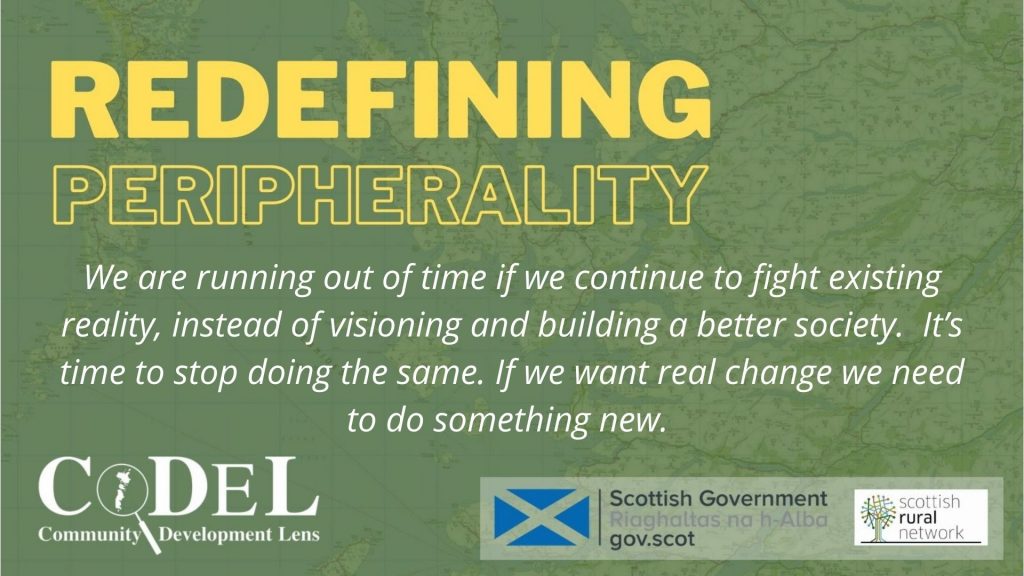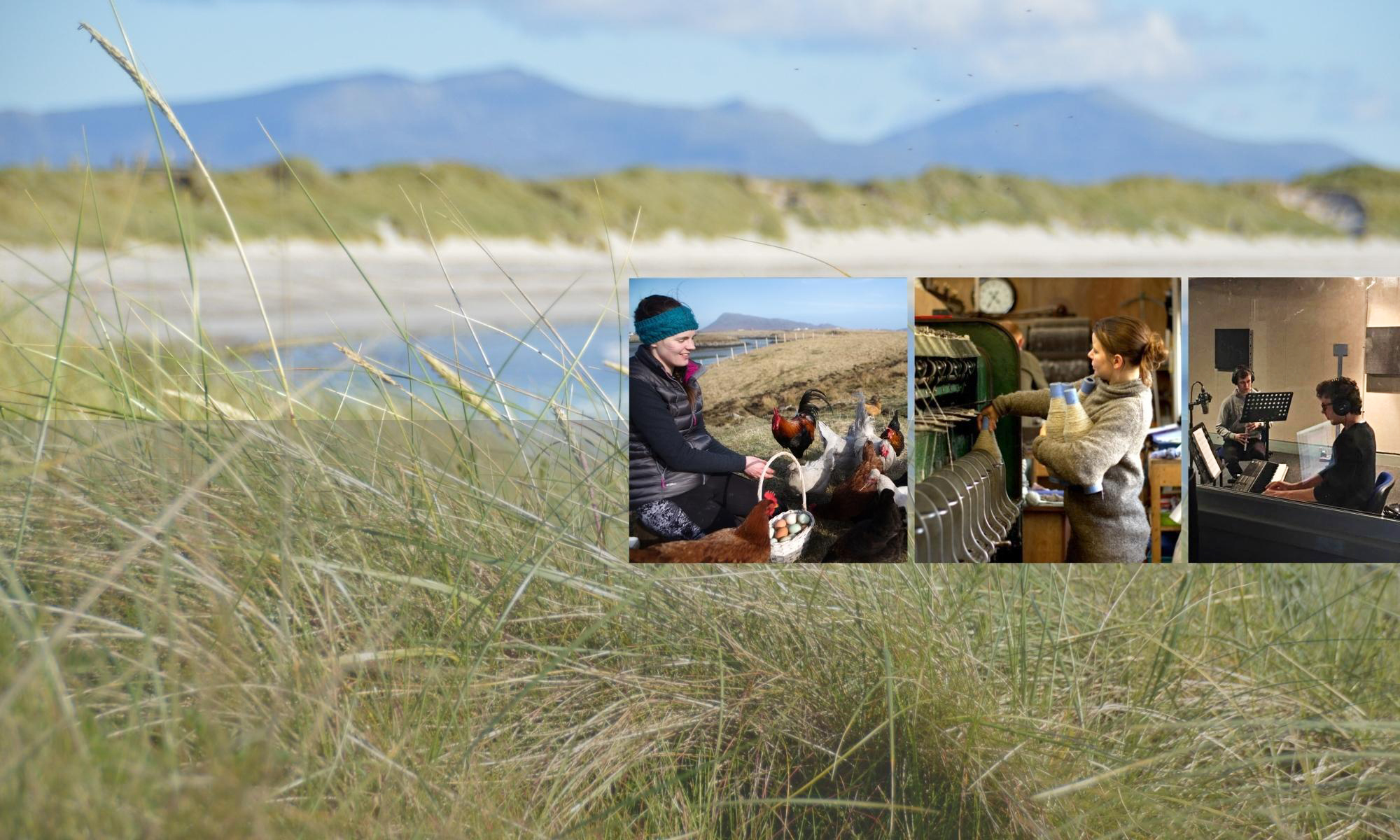by Mads Randbøll Wolff, Denmark

It is all coming together! And it’s not simple, it’s not even “just” complex. It is complicated!
What seems to be more and more clear to me is that we have reached a point in history where the sum of all our challenges tells us that we need to do something completely different. The old answers to the old questions do not take us in the right direction anymore.
Just look at the global situation regarding sustainable development, the climate crisis, the biodiversity crisis the constant and growing pressure on human rights and democracy, the increased divide between urban and rural communities, between … you continue! Maybe it’s time to start thinking in a different way. Maybe it’s not enough to make new agreements or legislative changes on the global, national, or local level if it does not bring about real changes, changes in our culture? Don’t get me wrong, we need the agreements, we need the SDGs, the Paris Agreement, and the upcoming new global frame for biodiversity and so on. But not a single problem will be solved if those agreements do not lead to actions and not least to a cultural change. If we just continue with business as usual and think that the politicians will solve these challenges in combination with technological development, like an invisible hand, then we will do nothing but conserve the present culture, and the level of problems will increase.
This year 2022 marks the 50th anniversary of the first UN Conference on the Environment that took place in Stockholm in 1972. Since then, we have seen the 1987 report from the Brundtland Commission “Our Common Future”, the 1992 UN Earth Summit in Rio de Janeiro that delivered the UNFCCC (climate change convention), the CBD (biodiversity convention) and the UNCCD (desertification convention). We have the UN Sustainable Development Goals and the Paris climate agreement both from 2016, and soon hopefully a new global framework for biodiversity. For many people in western European countries, it’s not difficult to understand these problems and to try to act accordingly, but most of us do not feel it strongly enough, and so maybe we do not have a sufficient level of alertness?
But it can’t be ignored anymore, the situation is serious, and we need to be very careful when responding to the challenges of our time. We are all starting to feel it on a community level and on a personal level. We’re facing increased energy prices, increased food prices and increased prices on a number of important raw materials. Our resources are not endless, and we need to stop misusing our common resources.
Having said all that, there is a risk of just becoming disillusioned; what does it matter at all and what can I do? Personally, I’m an optimist, and it is the optimistic perspective that gives me the energy to act. But I do not want to suggest that we all just need a scoop of optimism, that would be naive. Each of us needs to find our own source for energy as individuals and as citizens in our communities.
There are many reasons why I believe that a change for the better can be realized. I will try to list three of them here that I believe bring about transformative power on different levels:
The relation between mankind and nature. The philosophic reason.
For centuries society and mankind has moved towards separating itself from nature and ecosystems. We are not part of the ecosystems anymore, not even on top of them. We have separated ourselves from the ecosystems, we control nature, and we change it when necessary, if it can bring about benefits. Humanity has always had impacts on nature, and nature is dynamic. Don’t get me wrong. But what seems to be a growing acknowledgement is that we have reached a dead end with this thinking, we have reached the limit in the way we extract resources and exploit nature. Humanity is about to redefine its relation to nature – as part of nature, not as an outside spectator and exploiter of nature. Maybe that will be one of the important steps in teaching us how to use without misusing!
The desire and will to stop doing the same. The cultural level.
We do know it: that the way we live, the way we extract resources, the way we produce and consume has a limit. We can’t continue this way. Most people acknowledge this. Fewer also feel it. But it is there, the evidence that something is wrong! For many years we – collectively – have been addressing the problems by adjusting practices. And basically, we have continued to use the same kind of solutions that have proved not to change the root causes. Maybe it’s time to stop doing the same. If we want real change we need to do something new. After many years where discussions and political attention has been on fighting what we dislike, I see more and more signs of people starting to do something new, and as Buckminster Fuller said: “You never change things by fighting the existing reality. To change something, build a new model that makes the existing model obsolete.” We are running out of time if we continue to fight, instead of visioning and building a better society. And It’s time to talk about a change of culture, a change of the culture that has put us in this situation.
The small but important steps taken by millions of people in doing changes in their own community. The local level.
You don’t have a chance – take it! That seems to be the “parole” that more and more people are acting on. They don’t have a chance. At least if we look at the way society has developed for decades, emptying the local economy of agency, while at the same time promoting an on-going process of centralisation of our economy. It does not pay off to be small. Small units, multifunctionality, etc. that have been an important part of local economies for centuries hardly exist anymore because it does not pay off. Gone is the vivid life in rural communities, the economic diversity and the diversity of how people live their lives. But how fortunate it is that many people ignored that and just did it. Took the chance that was taken away from them. We see it all over in small remote communities. People are innovating, developing, re-building the local economy. In spite of the overall structural policies.
Last week I attended the UN CBD (Convention on Biological Diversity) negotiations for a new global framework for biodiversity, the so-called post 2020 process. A very important meeting addressing a challenge that for many years has been living a silent life amongst experts. However, things are changing, the biodiversity crisis is becoming real, and it can be felt by people.
In many ways the meeting was delivered in a very classical way, just as was the case with the climate meetings at COP26 in Glasgow last year. But we still need them, we need the international cooperation, we need the international frameworks that guide us and set goals for what needs to be done. But we do also need to stop thinking that just because we get an agreement we are all safe. We need the agreements, but the actual work only starts after the agreements. We need therefore to use the agreements as the signal for actions.
And we do not need simple implementation of the agreements on a national legislative level. Ministries of environment cannot solve the problems regarding biodiversity alone, ministries of climate cannot solve the problems regarding the climate alone. It’s an all-calling, all people on deck, … we need to start the cultural change now.
One thing that I was especially impressed by was the participation of the youth constituency at the CBD meeting. Young people have been organised in the Global Youth Biodiversity Network for more than a decade. They have been pushing for changes, to involve youth and civil society in addressing the problems.
For this meeting they presented a campaign based on three words, that I will adopt and use as the final words in this post:
#StopTheSame!
(#StopTheSame! for youth, biodiversity and our future | POST2020 (4post2020bd.net))

